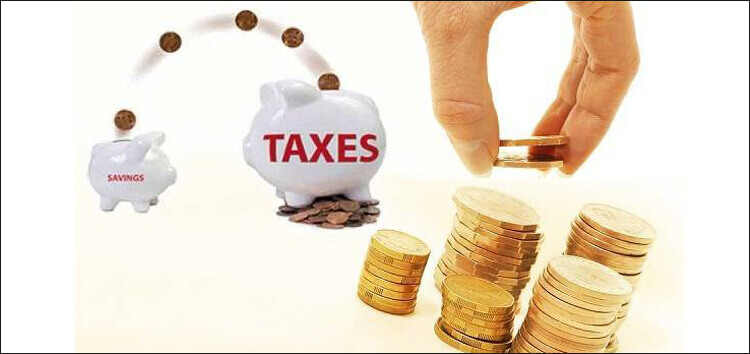
Come January, and there is a frantic rush among tax payers to rustle up all the required proof to claim deductions from taxable income. Under Section 192, your employer is obliged to deduct tax from your salary, if you are on their rolls, and deposit tax deducted at source (TDS) into the government account. How does your employer determine the amount of tax to be deducted each month? The process is fairly simple. At the beginning of the financial year, you give an estimate of your tax saving investments planned during the year to your HR and based on this declaration the HR will determine the amount of tax deductible each month. There are certain tax exemptions like Section 80C, Section 80D, Section 24 and HRA where your proofs will be considered for deducting lower taxes. However, in case of donations under Section 80G, you will have to claim the deduction as a refund when you actually file your income tax returns.
The Income Tax Act permits the tax deductor (employer in this case), to consider certain exemptions while calculating tax, subject to submission of verifiable evidence by the employee. However, most employers will insist that you submit all your proofs by the first week of January and based on the proofs submitted, the proportionate deductions are considered by the employer. Here are 4 such exemptions and the nuances involved…
Deductions under Section 80C of the Income Tax Act…
This is, perhaps, the most common and preferred mode of saving taxes for employees. This includes investments in public provident fund (PPF), LIC premia; ELSS Schemes with 3 year lock in, principal component of home loan, tuition fees of children, long term bank FDs etc. Your contributory PF (CPF) is also eligible within the overall limit of Rs.150,000/- and you do not need to submit any proofs for the same. For the others, you can either submit photocopies of the statement or an online receipt downloaded from the website. Try to complete your last payments for the year by February so that you have sufficient time to submit all the proofs to the HR team.
Deductions under Section 80D for Health Insurance…
With the cost of healthcare shooting up sharply in the last 15 years, medical insurance has become a necessary part of every person’s financial plan. Your annual benefits can go as high as Rs.60,000 and you can pay health premium for yourself, your family and your dependent parents. There is one thing you need to remember with respect to medical insurance. You can pay the premium by cheque / DD / RTGS but any payment of premiums in cash will make you ineligible to avail tax exemption under Section 80D of the Income Tax Act. The individual needs to submit a copy of the original healthy insurance contract as well as a copy of the receipt of the premium paid with a clear mention of the cheque/ DD / RTGS reference number.
Deductions for House Rent Allowance…
With greater urbanization, there is a rush to move towards cities. Hence there are a large number of people who are paying hefty rents in urban pockets. For such individuals, House Rent Allowance (HRA) constitutes a very important tax exemption. Unlike Section 80C and Section 80D, HRA does not have any monetary upper limit. It is only limited by your actual rent paid and a percentage of your basic salary. For people living in metropolitan cities, this is a very important exemption. There are certain preconditions to claiming these deductions. You need to submit copies of the rent receipts issued by the landlord acknowledged with a signed revenue stamp. You also need to submit a copy of the lease agreement and it is necessary to ensure that the lease agreement is registered and also the requisite police verification is done. Many employers refuse to recognize unregistered lease deeds for tax purposes.
Deductions under Section 24 for interest paid on Home Loan…
This is another section that gives you an exemption for interest paid on your home loan. The home loan must have been taken from a recognized financial intermediary. The lender in this case will issue a certificate which segregates your monthly EMIs into the principal component and the interest component. Remember it is only the interest component that is eligible for benefit under Section 24 up to Rs.200,000/- per annum. The principal component is available as a deduction under Section 80C. As proof, one needs to submit the certificate issued by your housing finance company, which is normally available for download from their website itself. When you purchase a house, the pre-EMI interest can be separately defrayed equally over a period of 5 years.
Also Read – Best Tax Saving Mutual Funds to Invest 2022
The moral of the story is that you need plan the submission of your investment proofs well in advance. Today, most employers give you the facility of uploading your investment proofs directly. That means, you do not need to wait till the end of the fiscal year and you can upload proofs on a regular basis. That way you can ensure that you do not get a nasty deduction when you get your pay-check for the last quarter.
Published on: Jan 18, 2017, 12:00 AM IST
We're Live on WhatsApp! Join our channel for market insights & updates
